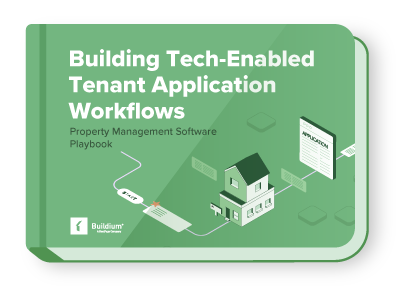The most successful property managers aren’t just overseeing properties—they’re expanding. They’re stepping into new markets, testing what works beyond their backyard, and building competitive advantages one region at a time.
Start your free trial today!
Try Buildium for free for 14 days. No credit card needed.
Start Your TrialOf course, this is easier said than done. While you may already have considerable experience refining your operations and growing your business in your home market, breaking into new ones can be an entirely different beast. But with the right market research, planning, and digital tools, you can build a successful plan for growth.
Understanding the Benefits of Expanding Your Property Management Portfolio
Expanding your portfolio comes with real advantages. Here are just a few ways it can strengthen your business over time.
Diversifying Income Streams
The more properties and property types you manage, the more diversified your income stream. For example, by expanding from residential properties to commercial properties, you can protect yourself from downturns in either submarket. If commercial real estate rents dip, your residential properties can buoy you up (and vice versa).
Reducing Risk Through Market Variety
In addition to diversifying across properties and property types, you can also reduce risk through geographic market diversification. For example, by expanding your operations from Las Vegas, NV, into Phoenix, AZ, you can hedge against local market downturns. This limits your exposure to region-specific challenges, such as real estate regulations and natural disasters.
Leveraging Economies of Scale
As you expand, you can leverage economies of scale by spreading operational costs across a larger number of units. For example, you can lower the cost of software, marketing, staff training, and vendors on a per-unit basis to boost your bottom line.
Conducting Market Research
Not all markets offer the same opportunity. These strategies can help you zero in on the ones worth your time.
Identifying Emerging Markets
Emerging markets are those with high economic growth potential. As a result, they can be great options for expanding your property management business. Look for cities with population growth, job opportunities, and rising housing demand. The sooner you break into an emerging market, the sooner you can establish market share there and ride its positive tailwinds.
Pro tip: Stay on top of the latest industry trends by getting your free copy of our 2025 Property Management Industry Report.
Analyzing Demographic Trends
Markets can vary widely across population size, average income level, homeownership rate, and other demographics. Use public data, such as that available from the U.S. Census Bureau, to size up different markets and determine which best fits your property management business. For example, if you specialize in student housing, look at college towns with younger populations. Or if you prefer senior housing, explore markets with older populations.
Assessing Local Regulations and Policies
Rental regulations and policies can significantly impact profitability. Before breaking into a new market, research its local landlord-tenant regulations, rent control laws, eviction policies, licensing requirements, and other relevant restrictions. A highly regulated market can make it harder to run a profitable property management business, but it can also set clear expectations.
Competitor Analysis
Carefully analyze existing competitors in the area, including their service offerings, pricing, and customer reviews. That way, you can pinpoint gaps that your property management company can help fill. Plus, you can learn from your competitor’s strengths and weaknesses to refine your business processes.
Building a Strategic Expansion Plan
Choosing your market is only the beginning. A clear, detailed plan will help you turn opportunity into measurable results.
Defining Your Expansion Goals
First, set concrete goals for your market expansion. For example, what types of rental properties are you after? And how many units? Your goals should support your overall business strategy and follow the “SMART” framework, meaning they’re specific, measurable, achievable, relevant, and time-bound. This helps you avoid weak goals that lead to little progress.
Budgeting and Financial Planning
Next, create a financial plan for achieving your market expansion goals. This involves estimating the upfront costs of marketing, hiring, onboarding, legal compliance, etc. From there, you can forecast your expected returns. Use past performance and market data to run ROI projections, but be conservative in your estimates to avoid overleveraging yourself.
Creating a Timeline for Expansion
Break your planned expansion into phases, such as research, setup, launch, and optimization. Then assign milestones and deadlines to each phase. This helps turn your larger expansion goals into smaller, more manageable steps.
Pro tip: If you need help marketing your property management services as you expand, consider working with Buildium Marketplace partner Goodjuju and Upkeep Media for everything from website design to comprehensive digital marketing support.
Establishing a Strong Local Presence
As the new property manager in town, it might be hard to win new clients. However, you can speed up the process by partnering with experts, hiring locally, and investing in marketing.
Building Local Partnerships
Partner with local real estate agents, contractors, and real estate lawyers. They can help you get set up in a new market so you don’t waste any time during your launch. Not sure where to find them? Attend local networking events and join local property management or landlord associations. As they say, it’s not what you know—It’s who you know.
Hiring Local Property Management Teams
Your local property management team will be your boots on the ground. As such, they must be carefully sourced. Look for experienced property management professionals who are familiar with the local market. Then implement robust training programs to bring staff up to speed on your business processes and local regulations.
Marketing Strategies for New Markets
To spread your name in a new market, focus on targeted marketing strategies. For example, you could run region-specific ad campaigns or partner with local businesses and influencers. You could also sponsor community events and localize your website and its search engine optimization (SEO) to grow your brand awareness.
Pro tip: Find qualified property owner leads in minutes by joining the All Property Management network for free.
Overcoming Challenges in Multimarket Expansion
Expansion comes with complexity, but the right systems can help you manage it. Here’s how you can stay in control across markets.
Navigating Cultural and Regional Differences
Markets can vary in their tenant expectations, communication styles, and local customs. As a result, you may need to adapt your messaging and management style accordingly. Carefully analyze your competitors and consult local partners to understand regional differences.
Managing Operational Complexities
Staying on top of operations across multiple markets can be tough. To make the job easier, create standard operating procedures (SOPs) and checklists. That way, you can streamline expansion, create consistency across markets, and ensure nothing falls through the cracks.
Handling Remote Property Management
As your portfolio grows, you may be forced to oversee properties remotely. This could involve virtual inspections, remote leasing, and adopting cloud-based tools to streamline workflows. The challenge is to adopt remote management methods without losing the human touch. Strike the right balance by hiring competent local staff and leveraging the right tech.
Leveraging Technology in Your Expansion Strategy
As your business scales, so should your systems. These tools can help you manage more properties, people, and markets.
Utilizing Property Management Software
Comprehensive property management software lets you centralize operations across multiple markets on a single platform. For example, Buildium can automate tasks such as rent collection, maintenance requests, lease tracking, and much more. Don’t slow down your market expansion by using an outdated tech stack.
Implementing Data Analytics for Decision Making
Track business metrics as you expand into new markets. With data and analytics tools, you can get real-time insights across tenant retention, rent payments, vacancies, and more. That way, you can compare how you do against industry benchmarks and your past performance in other markets and make business decisions accordingly.
Enhancing Communication and Collaboration Tools
To keep your communications clear and responsive as you diversify your portfolio, you need a consolidated way to communicate with rental owners, staff, and tenants. Portals for owners and renters can act as a central to communicate important information to the right stakeholders, easily bring on new clients and tenants, and cut your workload down with automated updates and alerts.
Monitoring and Evaluating Performance Across Markets
As your property management business grows, you’ll want to monitor and evaluate your performance across different markets. Here are some ways to do that.
Setting Key Performance Indicators (KPIs)
Set key performance indicators (KPIs) such as occupancy rate, maintenance turnaround time, customer satisfaction rating, etc. If necessary, tailor KPIs to the unique needs of each market. This will help you refine your expansion strategy by revealing what’s working and what isn’t.
Regular Performance Reviews
Schedule regular check-ins with your staff to maintain high service quality. Discuss areas where they are performing well and where they could improve. You may want to delegate one-on-one interviews with lower-level team members to local leaders within your company.
Adapting Strategies Based on Local Performance
If your KPIs and performance reviews suggest change is needed, don’t be afraid to adapt. Adjust your marketing, staffing, or pricing based on the performance data and encourage local teams to provide regular feedback and suggestions for improvement.
How to Lay the Foundation for Long-Term Growth
Expanding into new markets isn’t just about growing your business as fast as possible. It’s about growing strategically. With the right strategy and tools, you can scale your property management business into new areas with minimal growing pains.
Buildium gives you one platform to manage every step of that process—from leasing and communication to performance tracking. You can try it free for 14 days (no credit card required) or schedule a demo to see it in action.
Read more on Growth

